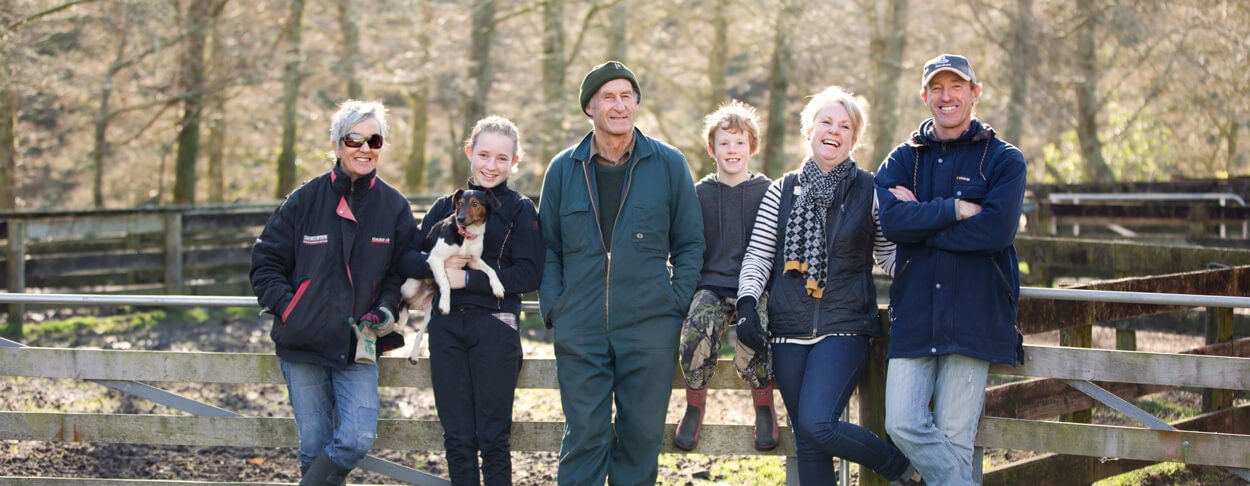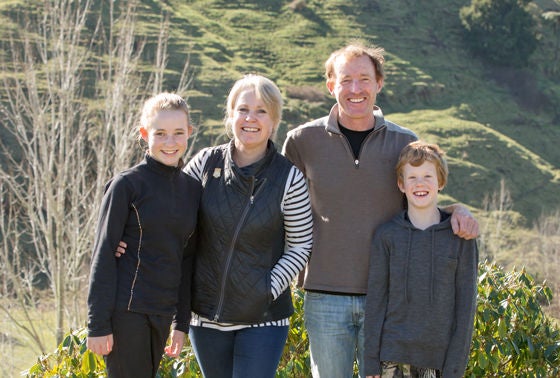
Chattan Farm is situated in an idyllic locale approximately 40 minutes south west of Whakatane in the Bay of Plenty region of New Zealand’s North Island.
Owners Tim and Jo Mackintosh, along with their children Alice and George, run a livestock operation along with a number of diverse businesses from their 680 hectare farm. Sheep and beef production is the cornerstone of the Chattan Farm operations, where they produce up to 5000 stock units a year of Romney, East Friesian and Texel sheep along with Angus cattle. Along with these stock numbers Tim says they also graze dairy heifers.
“We generally grow out around 400 head of heifer stock from the age of four months through to 18 months,” Tim said.
“We’ve been fortunate this year that our grazing numbers have remained stable despite the dairy price downturn. For many dairy graziers across the country, numbers are down significantly as dairy farmers have elected to grow out their stock on their own farms to save costs.”
The Mackintosh Family also have 75 hectares of their more inaccessible land set aside for forestry. “We grow predominately Pinus Radiata but also a bit of Cyprus,” Tim said. “They generally take about 25 years to reach maturity but because there isn’t as much of a sense of urgency you can play the market a bit and leave the trees for an extra couple of years if the market is flat. We harvest a block probably every four to five years.”
Adding to the diversity of operations is the contract production of maize silage for the surrounding properties, although this has also died back a bit with the challenges facing the dairy industry.
Working with the environment
Chattan Farm itself has important environmental significance and there are areas of the farm that are protected in perpetuity through the Queen Elizabeth II National Trust. Tim says that he’s seen only benefits from the land remaining unfarmed.
“We’ve had the country locked away for 30 years now,” he said.
“The native bush area that is in trust actually plays host to the Kōkako, an endangered bird that is native to New Zealand.”
In addition to the land that is in trust Tim says they have also retired other areas of the farm from grazing. “We’ve taken out streams and smaller, steeper areas as well as any areas that are prone to erosion,” he said.
“We’ve fenced them off and replanted them. “While we don’t get any financial incentive to fence off these sites, there is definitely some money to be saved in terms of only farming the more productive areas of your farm.”
Tim says that there is also a passionate group of volunteers who have worked tirelessly to protect the Kōkako along with other native flora and fauna. “These volunteers trap pests such as possums, rats and weasels and monitor the bird population. Since the program began over 15 years ago, we’ve seen the bird population explode.”

Agricultural tourism
For Chattan Farm, the increase in native bushland and birdlife has had an added flow on effect, tourism, an avenue that the Mackintosh Family have been pursuing through the ever growing phenomenon of glamping.
“The property lends itself to glamping, with 200 hectares of native bush, good views and demand from people wanting to access places like this.”
Glamping describes a style of camping that is much more luxurious than your traditional tent and campfire. At Chattan Farm visitors are greeted by a beautiful clearing nestled close to the native trees where a wood-framed luxury tent complete with wood stove awaits them.
Tim says that while they were anxious about opening the farm up to urban visitors they have had nothing but positive feedback.
“I think most people that visit are coming here to embrace the rural environment and actually disconnect from their busy lives,” he said.
“Often for parents they’re seeing it as an opportunity to teach their children where their food comes from. It used to be that in New Zealand everyone had a relative on a farm and you would always be visiting, but that’s no longer the case.”
For the Mackintosh Family the evolving diversity of their operations is part of a risk management strategy. “It may look like we have a lot going on, but if a significant commodity specific disease such as foot and mouth were to hit our shores, I’d like to know that we had a backup plan,” he said.
With plans to continue to grow all facets of their diverse business, one thing can be assured for Tim and his family, life on Chattan Farm won’t be dull.
